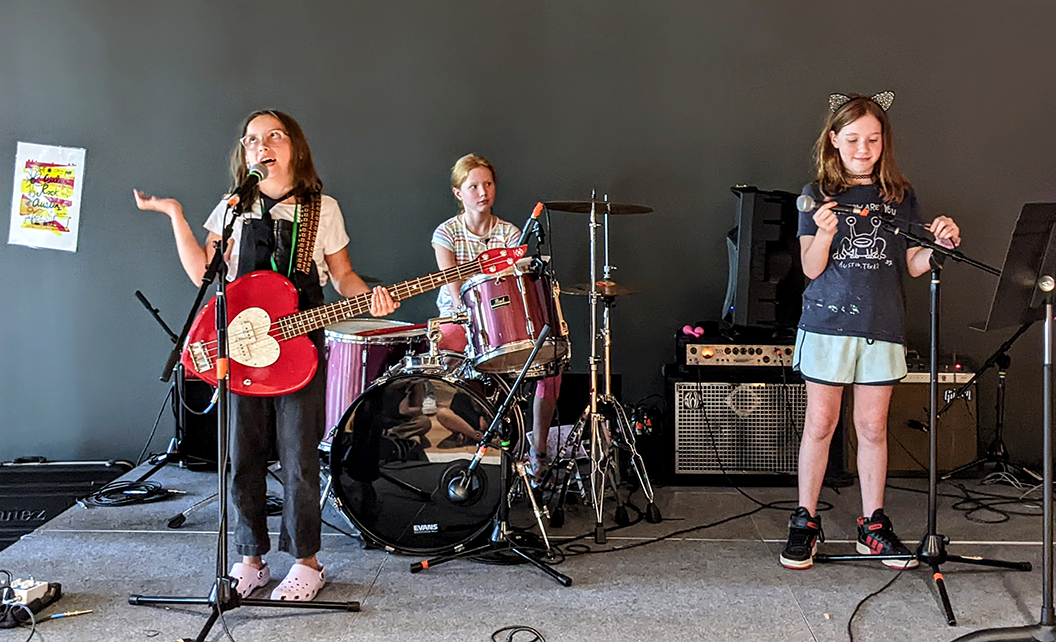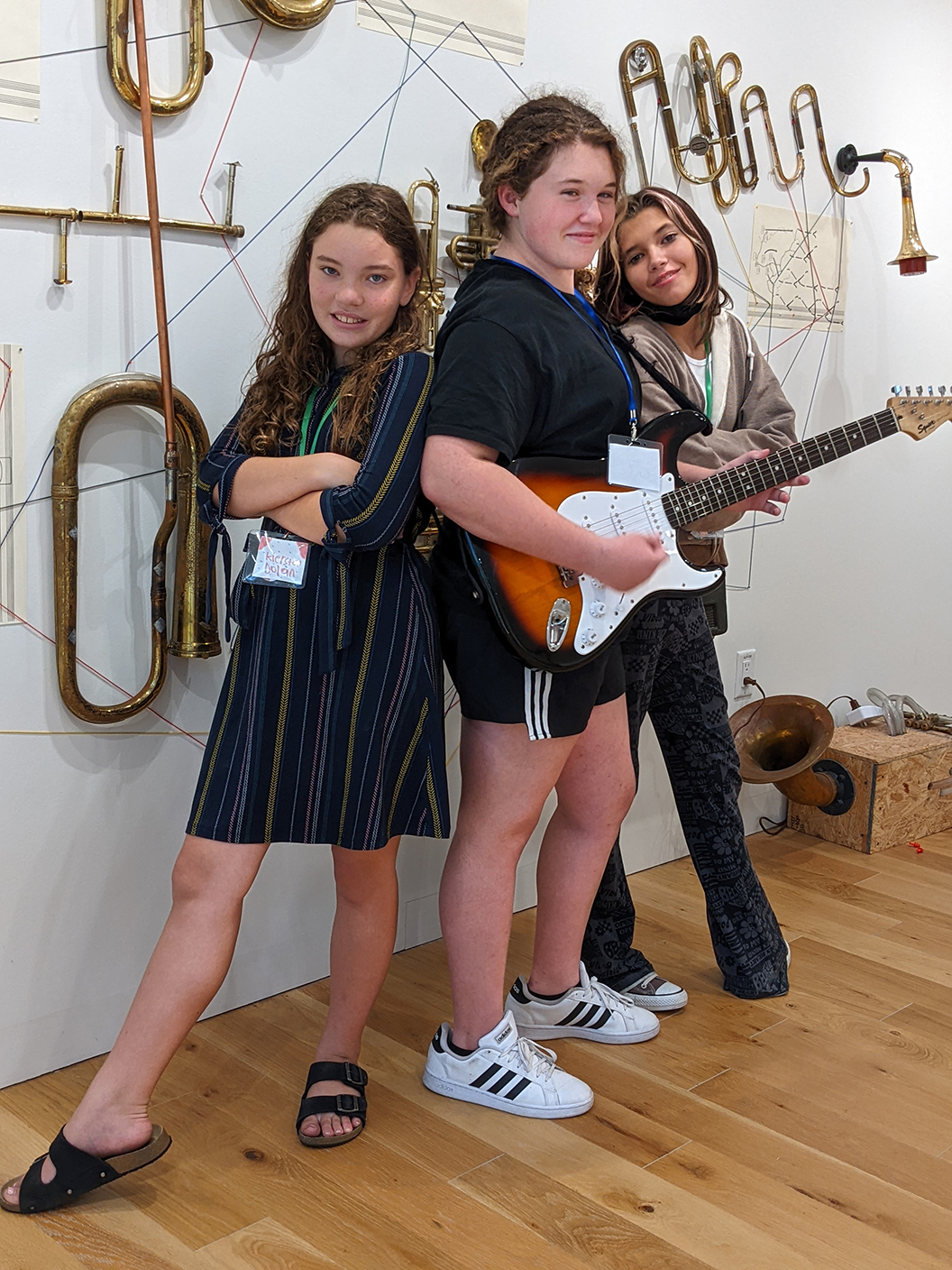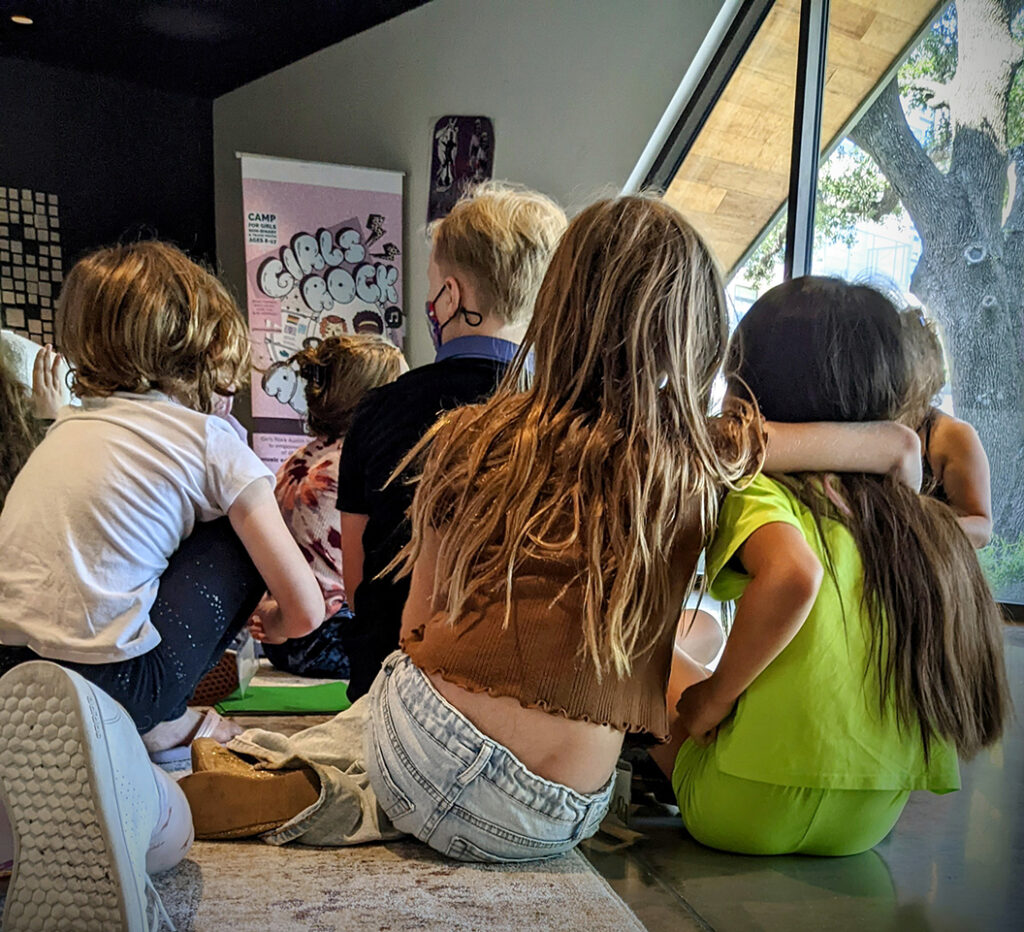Girls Rock Austin has given hundreds of young girls, nonbinary and trans youths a place to rock.

By Kaitlyn Wilkes, Photos courtesy of Girls Rock Austin
Program Director Imani Glasco drifted about the Girls Rock Austin (GRA) day camp as she waited to teach her workshop. As she made her rounds, what stuck out to her was how passionate the campers were at such a young age.
“It was so awesome just seeing them with their giant instruments that were so big compared to how small they were,” Glasco laughs. “But they were just killing it! They’re practicing, and they were all focused in a way that you very rarely see young children focus.”
Founded in 2007, GRA and its Camp Rock-A-Rama summer camp now serve over 1,000 young women, trans and nonbinary youth of Austin, ages 8 to 17, every year. The program and camp’s goal is to give participants a space to learn about and practice music without judgment. Sixteen years after its founding, GRA went from hosting a weeklong summer camp for fewer than 100 girls to more than 1,200 people yearly, awarding 72% of their attendees with scholarships and tuition assistance in 2022. In all, GRA has educated more than 100,000 girls, gender fluid/nonbinary and trans children.
“There’s lots of camps and availability for boys, and especially in the music industry there are a lot of male artists, and there are a lot less female artists,” Glasco says. “It’s a lot harder for those who are women, or presenting as nonbinary or trans, to feel like they have a voice in the industry and feel heard and to feel like they can say something and be respected.
“It is changing. It’s definitely getting better,” she continues. “But I think it’s important to prove it’s not just women and girls; it’s also nonbinary people and trans people, who are maybe seen as others and outsiders in the industry. So, I think it’s really important to provide them a space where they probably wouldn’t have had one before.”

Glasco was introduced to GRA when she met the former program director, Madison “Mad” Whitaker, at a show for Whitaker’s band, Sailor Poon. After volunteering at GRA events and joining the board, when Whitaker stepped down, Glasco presented herself and her background in music business as a potential replacement.
“I [had]been kind of all over the place,” she recalls. “So it just was like, ‘Hey, I can help out and would love to if you need that.’”
Despite the organization’s efforts to spread awareness about their work, the decreases in events they have been able to hold in the wake of the pandemic and in grant funding they have received from the city have made it hard to show that they are still active in the community. Despite this challenge, they were still able to hold 14 events from March 2022 to March 2023.
“It’s been a weird kind of flux situation where I know that there is a lot of help and resources, but people are having to do other things because there’s just not the money there,” Glasco says.
Part of her job as the program director includes trying to share the efforts of GRA with the community, even with the funding decrease, because of the support locals have shown to musicians and musical organizations in the past.
“Getting back into the industry and reminding people that we’re still here is something that we are trying to do more and more,” she says. “It’s definitely something that needs to happen.”
The importance of reacquainting the community with GRA’s mission cannot be understated. Just as Austin’s music scene has been fostered by Austinites, GRA has fostered artistic inspiration for Austin’s musical future.
“It’s such an important thing to be able to [express yourself artistically]in an environment [where]it is safe to make mistakes and kind of figure it out,” Glasco says. “You can feel the sense of community there, and it’s just so great to feel.”

Operation Lunch Box
In June 2020, Girls Rock Austin partnered with Keep Austin Together, a Travis County-supported emergency food access network, to start the Operation Lunch Box Initiative. The program provided folks in the Austin community who were affected by the pandemic by preparing nutritious meals that can be easily frozen or microwaved. At first focusing on Austin artists, musicians and their families affected by COVID-19, the program expanded after the winter disaster in February 2021 to include anyone in Austin affected by food insecurity. Halloween 2022, GRA’s Operation Lunch Box Initiative surpassed the milestone of providing 100,000 prepared meals to Austinites.

